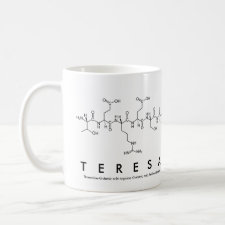
Authors: Viveiros R, Bonifácio VDB, Heggie W, Casimiro T
Article Title: Green Development of Polymeric Dummy Artificial Receptors with Affinity for Amide-Based Pharmaceutical Impurities.
Publication date: 2019
Journal: ACS Sustainable Chemistry & Engineering
Volume: 7
Issue: (18)
Page numbers: 15445-15451.
DOI: 10.1021/acssuschemeng.9b02948
Abstract: A simple, clean, and sustainable technology has been applied to the development of amide-based artificial receptors for the pharmaceutical impurity acetamide. Artificial receptors in the form of analogue template molecularly imprinted polymers (AT-MIPs) were produced in a supercritical carbon dioxide medium using methacrylamide and ethylene glycol dimethacrylate as the functional monomer and the crosslinker, respectively. AT-MIPs were obtained in high yields as easy-to-handle and ready-to-use solids. The materials were characterized by Fourier transform infrared spectroscopy, nitrogen adsorption porosimetry, scanning electron microscopy, and Morphologi G3 particle size analysis. The affinity properties of AT-MIPs for three amides (acetamide, benzamide, and pivalamide) were assessed by packing the affinity materials into blank columns and evaluating their profiles under static and dynamic modes. The size and shape of the cavities created on the artificial receptors had a strong impact on the material's performance. The results suggest a potential use of three-dimensional-shaped artificial receptors as efficient devices for the removal of amide-based compounds, whose dimensions are equal to or lower than those of the template molecule, from pharmaceutical crude mixtures
Template and target information: dummy template, acetamide, benzamide, pivalamide
Author keywords: Supercritical carbon dioxide, Green chemistry, Genotoxic impurity, dummy template, molecularly imprinted polymer, Solid-phase extraction, affinity purification, amide-based compounds



Join the Society for Molecular Imprinting

New items RSS feed
Sign-up for e-mail updates:
Choose between receiving an occasional newsletter or more frequent e-mail alerts.
Click here to go to the sign-up page.
Is your name elemental or peptidic? Enter your name and find out by clicking either of the buttons below!
Other products you may like:
 MIPdatabase
MIPdatabase









